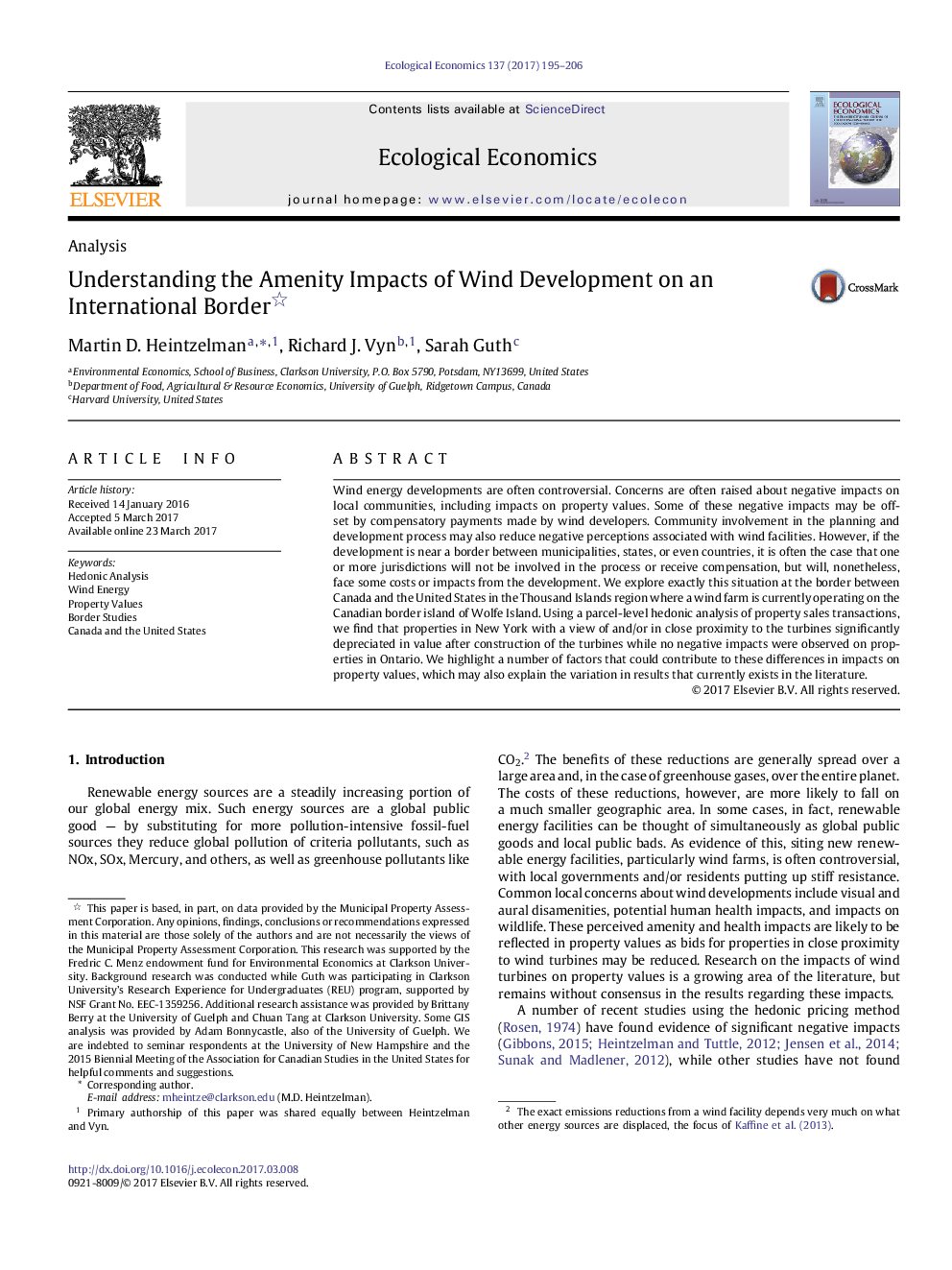| Article ID | Journal | Published Year | Pages | File Type |
|---|---|---|---|---|
| 5048924 | Ecological Economics | 2017 | 12 Pages |
Wind energy developments are often controversial. Concerns are often raised about negative impacts on local communities, including impacts on property values. Some of these negative impacts may be offset by compensatory payments made by wind developers. Community involvement in the planning and development process may also reduce negative perceptions associated with wind facilities. However, if the development is near a border between municipalities, states, or even countries, it is often the case that one or more jurisdictions will not be involved in the process or receive compensation, but will, nonetheless, face some costs or impacts from the development. We explore exactly this situation at the border between Canada and the United States in the Thousand Islands region where a wind farm is currently operating on the Canadian border island of Wolfe Island. Using a parcel-level hedonic analysis of property sales transactions, we find that properties in New York with a view of and/or in close proximity to the turbines significantly depreciated in value after construction of the turbines while no negative impacts were observed on properties in Ontario. We highlight a number of factors that could contribute to these differences in impacts on property values, which may also explain the variation in results that currently exists in the literature.
